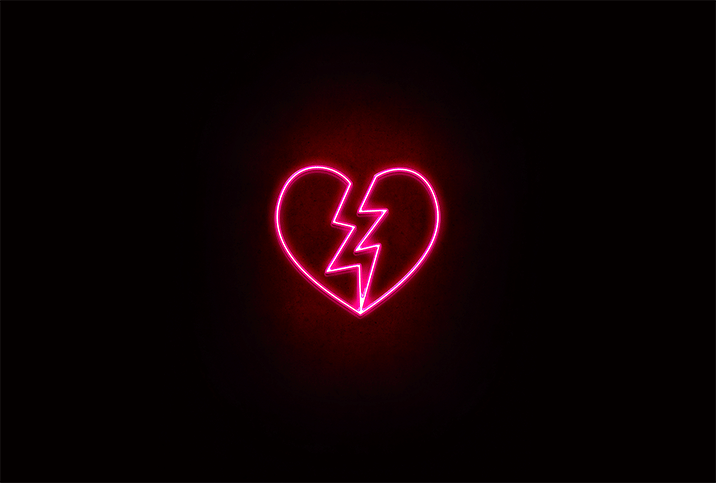How Can You Mend a (Literally) Broken Heart?

Life can be cruel, sometimes cruel enough to cause extreme emotional pain—pain so colossal, it becomes a precursor to a condition known as stress cardiomyopathy, or broken heart syndrome.
Stress cardiomyopathy is a sudden but reversible weakening of the left ventricular muscles of the heart due to stress. It gets its nickname because most cases are caused by a strong emotional stressor, such as the death of a close loved one.
"It's a condition where the heart is contracting abnormally in certain segments," said Ahmad Masri, M.D., an assistant professor of medicine at Oregon Health & Science University. "For example, in a classic case, the base of the heart is overworking while the tip of the heart does not work or move, and that can lead to a variety of symptoms and signs. Although originally described to occur after the death of a loved one, now we know that there are many different culprits which can precipitate this condition, from physical to emotional stressors."
Causes and symptoms
"Patients can have a wide range of presentations," Masri continued. "They can be asymptomatic, but symptoms can include shortness of breath, chest pain, palpitations, and in the minority of cases, the disease can be severe enough to cause heart failure, low blood pressure and collapse. It can also present as a heart attack picture without having an actual heart attack."
While there is a good understanding of what might precipitate the condition, medical science has yet to propose exactly why it happens. It’s thought that a surge of stress hormones, such as adrenaline or catecholamines, might damage the heart temporarily.
It's thought that an episode disrupts the pattern of heartbeats, causing parts of the heart to temporarily enlarge, which leads to more forceful contractions in other areas of the heart. These changes cause temporary heart muscle failure.
"It can be caused by either emotional stressors, such as grief, fear or surprise, or physical stressors, like seizures, asthma attacks, significant bleeding or low blood sugar," said Odelia Lewis, M.D., a family physician in Brooklyn, New York.
Is stress cardiomyopathy dangerous?
Complications from stress cardiomyopathy are rare. When they occur, possibilities can include rupture of the left ventricle of the heart, blockage of the blood flow from the left ventricle, heart failure, a blood clot in the wall of the left ventricle, left ventricular outflow tract obstruction, cardiogenic shock, complete atrioventricular block and death.
Diagnosis of stress cardiomyopathy involves a review of your medical history and recent events in your life. Your doctor may do further testing to confirm the condition is suspected. Those diagnostic tests can include:
- An electrocardiogram (EKG) to measure your heart's electrical activity.
- A coronary angiography, which uses a dye and type of X-ray to look at your heart's arteries.
- Echocardiography, which uses sound waves to create moving images of your heart's pumping action.
- A chest X-ray to show the structure of your heart, lungs and blood vessels.
- The use of magnetic resonance imaging (MRI) to produce both still and moving pictures of your heart.
- A ventriculogram, which uses a dye injected into the heart's left ventricle, then X-rays are used to display the size and pumping efficiency of this heart chamber.
Prevention and treatment
There's no specific treatment for stress cardiomyopathy, and for patients with minimal issues, no treatment is required. However, a minority of patients who have severe complications may require the assistance of temporary mechanical support, such as an artificial pump, to help them breathe.
"Treatment is based on the severity of symptoms," Lewis said. "For a case where there is no blockage to the outflow tract, supportive management, such as supplemental oxygen and monitoring, is the preferred choice of treatment. In cases where there is blockage of the outflow tract, severe left ventricular dysfunction or hypotension, patients may require more aggressive treatment, such as fluid resuscitation and medications such as ACE inhibitors, beta blockers, and/or aspirin."
Preventing the occurrence of stress cardiomyopathy requires a combination of stress management habits and a deliberate lifestyle that supports heart health. Stress can be managed by how you balance work and rest, while incorporating activities like yoga, meditation and talk therapy. Heart health is further strengthened with a healthy diet, regular exercise and adequate sleep.
With increased awareness around stress cardiomyopathy, it's possible for anyone in consultation with their medical providers to implement lifestyle habits to avoid negative outcomes.


















